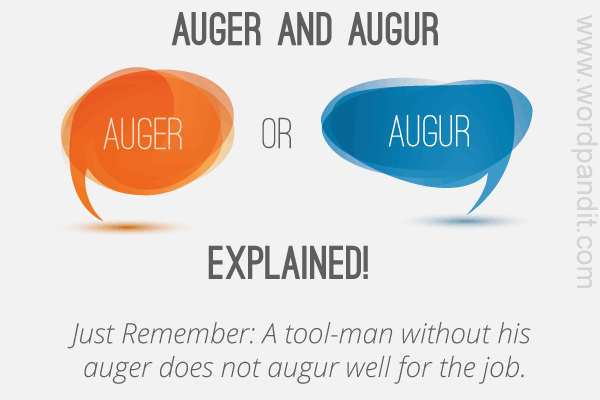
One is a tool, and the other is a prediction about the future. When you use an auger, you use a tool to drill a hole. Augur, on the other hand, always relates to premonition. As a verb, it means to predict or foretell. As a noun, augur indicates something that is ominous.
The word augur actually has an interesting derivation. Augurs were Roman priests who predicted the future by interpreting the flights of birds and by other natural occurrences; such as, examining their entrails, etc.
Want to see some augers in action? Click here.
Tool tip to remember the difference:
Just Remember: A tool-man without his auger does not augur well for the job.
Examples of incorrect uses of Auger and Augur:
1. But the fact the club was not even given a First Division licence would not auger well for its chances of overturning the decision at appeal.
2. But anyone who glanced at the stat sheet saw another number that augered well for the pro-legislation lobby.
Examples of correct uses of Auger and Augur:
1. Augers are effective tools for the machine man.
2. The current state of democracy in our country does not augur well for the future.
A Quick Recap:
Auger is a tool for boring holes into wood, leather, etc.: “He used an auger to make holes in the shoes for the shoelaces.”
Augur means to foretell, predict, forewarn: “Dark clouds augur the coming of the thunderstorm.”
Augur is also used to refer to a prophet, a prognosticator, an oracle: “An ancient Roman augur told Julius Caesar to ‘Beware the Ides of March’.”






